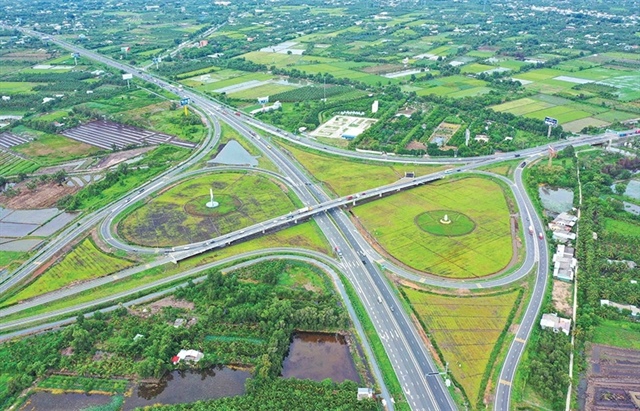Half of Asia-Pacific SMEs predict growth in exports: survey
Half of Asia-Pacific SMEs predict growth in exports: survey
Nearly half of small- and medium- enterprises (SMEs) in the Asia- Pacific region say that their revenue from intra-regional exports will grow over the next 12 months by an average of 22 per cent, according to a global research survey conducted by FedEx Express.

SMEs in the Asia-Pacific region, which derive an average of more than 68 per cent of their revenue from exports, are capitalising on the growth potential of other markets in the region.
Karen Reddington, president of FedEx Express in the Asia-Pacific region, said research showed that despite challenging global economic conditions, SMEs in the region were tapping other Asian markets for growth opportunities.
“What emerges is a broadly optimistic picture, with SME exporters in the region planning to embrace technology and the digital economy to help overcome a wide range of business challenges, from higher production costs to increasing competition,” she said.
The study also revealed a sense of optimism among the SMEs largely fueled by e-commerce potential.
Eighty per cent of the region’s SME exporters leverage e-commerce to sell to other markets, and 44 per cent of them foresee growth in e-commerce revenue in the next 12 months.
In line with the boom in e-commerce, momentum is building behind m-commerce (purchases made using mobile devices) and social commerce (purchases made via social media platforms).
Some 68 per cent of small businesses in the region are currently selling their products via mobile applications and 67 per cent offer customers the option of making purchases via social media platforms like Facebook.
M-commerce and social commerce account for an average of 22 per cent of regional SMEs’ export-driven revenue.
SMEs believe that both kinds of e-commerce will continue to drive growth. Nearly half of all SMEs expect their m-commerce (47 per cent) and social commerce-driven (49 per cent) revenue to increase over the next 12 months.
Competing in the digital economy, however, presents new challenges. Almost four out of ten (38 per cent) of SMEs in the region cited increasing international competition as a top business challenge.
To navigate this new competitive landscape, small businesses also see technology as the means to cope. Thirty-seven per cent of them say they plan to invest in new technology to overcome business challenges, and almost two-thirds (65 per cent) believe that doing so will also help them export more in the future.
SMEs also see the value of an efficient supply chain, which is essential to meet customer expectations, helping SMEs win customers and improve bottom lines.
More than 90 per cent of Asia-Pacific SMEs agree that “logistics plays an important part in their export businesses”.
E-commerce, in particular, is driving demand for faster delivery, with a significant 66 per cent of SMEs in the region engaged in e-commerce, indicating that they are willing to pay a premium for faster delivery services.
“This research study confirms our long-held view that, for SMEs, technology and supply chain solutions dramatically level the playing field in competing with larger players,” Reddington said.
“Increasingly, SMEs are investing in technology and looking to their logistics providers to help them adapt to their customers’ evolving needs, penetrate new cross-border markets, and ultimately ensure that their businesses remain competitive and sustainable.”
The independent study titled “Global Trade in the Digital Economy: Opportunities for Small Businesses” was conducted by Harris Interactive on behalf of FedEx to provide insights into global export opportunities and challenges facing SMEs.
Completed in September, the results were based on interviews with a total of 9,000 senior executives of SMEs from 17 markets across four regions.
FedEx Express, a subsidiary of FedEx Corp., is the world’s largest express transportation company, providing delivery to more than 220 countries and territories.




















